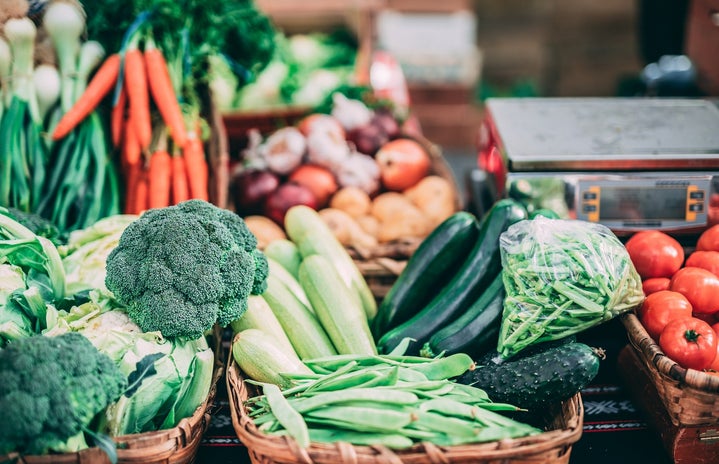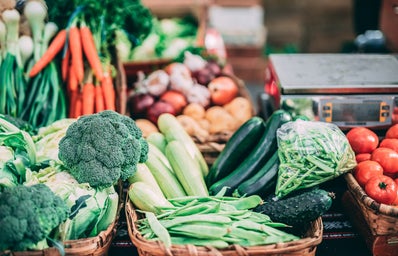I’ve been a vegetarian for almost four years now, and somehow, I still struggle with eating a consistently high amount of vegetables. Without in-depth meal planning, a set eating schedule, and extra money to spend on fresh produce that will undoubtedly go bad, it’s tough to get enough veggies into your diet. However, I’ve found strategies that allow me to make sure I’m getting my fill.
- Preparing Ahead of Time
The most helpful strategy I’ve found for incorporating more veggies into my diet is more about what you do with the veggies than the food itself. Preparing vegetables immediately after I buy them has been super useful. If they’re allowed to sit in the fridge untouched, it’s highly unlikely you’ll get to them. So, with things like lettuce, eggplant, and cucumbers, I’ll chop them up and store them in the fridge. That way, I can just reach for them without worrying about how long it will take to prepare them.
Another tip is roasting vegetables after chopping them up. I usually do this with sweet potatoes, cauliflower, bell peppers, or broccoli. I store these roasted vegetables in the fridge, pull them out, and reheat them as sides when I make meals. This serves the same function as preparing and storing produce — it’s already cooked and doesn’t require extra effort from the hangry version of you.
- Bowls and Stir Fry
One of the best strategies I’ve learned is making vegetables the star of a meal. Dishes like stir fry or grain bowls can help accomplish this. For stir frys, I usually start with a base of veggies like onions, peppers, and snap peas, then add in a protein. You can serve this with rice, but I usually eat it by itself and save rice for bowls.
Bowls are similar in the sense that they include mostly protein and veggies. I’ll usually start with rice, add two vegetables such as carrots and broccoli (can you tell they’re my favorite?), protein, and a sauce. This is a straightforward dish; you still get veggies while having a yummy meal.
- Frozen Veggies Won’t Hurt You
The frozen vegetable section has been a lifesaver at the grocery store. I will buy multiple bags of broccoli, peas, and carrots and store them in the freezer. This helps me keep my food waste down, as the bags don’t expire for a while.
Buying frozen produce has also helped me save time in the long run. When I get home from a long day of classes, the last thing I want to do is worry about preparing vegetable side dishes to go with my tofu and rice. Popping a bag of broccoli in the microwave has saved me from going vegetable-less many times.
- Pair and Season
Yes, add spinach to your eggs. The best thing about vegetables is you can add them to pretty much everything—eggs, pasta, sandwiches, muffins—vegetables will elevate just about any food as long as they’re prepared well. In other words, hide your veggies in yummier food like you’re five years old again. Although you may see it as cheating, vegetables are vegetables, whether eaten in another food or alone.
Another thing I’ve seen holding people back is eating raw veggies with no seasoning. Despite the possible dangers of using too much high-sodium seasoning, a little salt, pepper, paprika, and garlic powder will do you good. I think many people assume seasoning vegetables will somehow diminish the health benefits, but that is not the case. And regardless, eating vegetables with a little added salt is better than not eating any vegetables at all. Make it enjoyable, and you’ll be less likely to skip them.
- Smoothies, Sauces, and Soups
Blending vegetables, while I don’t do it very often, is a great way to get your vegetable intake without eating them in their normal form. They still provide the same nutrients, just combined into something more interesting! I will usually make smoothies and add raw spinach to get the nutrients without having to cook it. Vegetable tomato sauce and veggie soups are some of my go-to’s, as they up my veggie intake all at once.
Overall, I think people aren’t eating enough veggies because of inconvenience and taste. Vegetables are delicious and enjoyable when you’re not stressed about how to prepare them or hate the taste. I hope some of these tips are useful and help you to love vegetables as much as I do.




